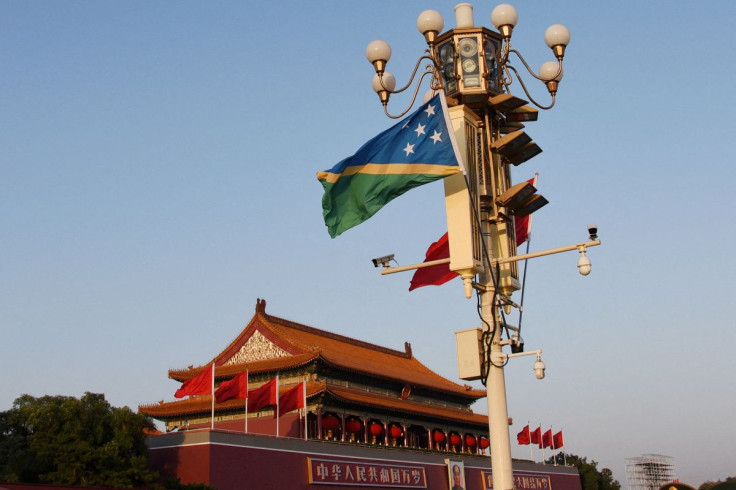China Could Turn Solomon Islands Into Another Sri Lanka
China could do to the Solomon Islands what it did to Sri Lanka — use the "debt trap" to acquire key sea outposts in the Southern Pacific Ocean.
Sri Lanka's debt trap saga began with loans Beijing provided to the Indian Ocean nation to pay for the upgrade of its ports by Chinese construction companies. When Sri Lanka couldn't afford to repay the loans, Beijing turned them into equity. And that provided China ownership and control of Sri Lanka's two major ports.
The Solomon Islands' saga could begin once the Pacific nation obtains the $100 billion loan from Chinese financial institutions its government sought after the country switched diplomatic ties from Taipei to Beijing in 2020.
While $100 billion may not sound like a great deal of money for a large economy, it is for a small economy like the Solomon Islands, with roughly $1.5 billion GDP and a few sources of foreign currency.
What will happen if the Solomon Islands cannot pay the loan?
Unfortunately, it's almost certain that the island nation will share the same fate as Sri Lanka, falling victim to Beijing's debt-trap diplomacy.
And that could explain a wave of protests by the Solomon Island citizens against the loan and the island nation's ties with China. They caused significant damage to Chinese businesses in the country's capital, Honiara.
But that has not stopped their government from signing a security agreement with China to assure "peace and stability" in the region. It was followed by Beijing's plans to establish a naval base on the Pacific Island, which will place warships closer to Australia's Northeastern Coast.
More recently, Beijing dispatched police experts to the Solomon Islands to train local police to deal with "public disorder such as riots, criminal attacks in public and on VIP guests," according to a Global Times editorial.
"I feel safer," Solomon Islands Prime Minister Manasseh Sogavare said after seeing a demonstration of a joint training session, which was also attended by Chinese Ambassador to the Solomon Islands Li Ming, according to the editorial.
Beijing's move to the Solomon Islands serves two goals. One of them is depriving Taiwan of its allies, making it hard to gain recognition as a separate nation. The other is to use it as an outpost in its quest to control the entire-Asian Pacific region and keep America and its allies off the South China Sea, which it considers its sea.
But America and its allies aren't staying still. For instance, a few weeks ago, a delegation of senior United States officials visiting the Solomon Islands told Beijing that Washington wouldn't allow a permanent Chinese military base on the island nation.
Still, America's warning may not prevent Beijing from turning the Solomon Islands into another Sri Lanka if the island nation's government proceeds with China's $100 billion loans.

© Copyright IBTimes 2025. All rights reserved.






















